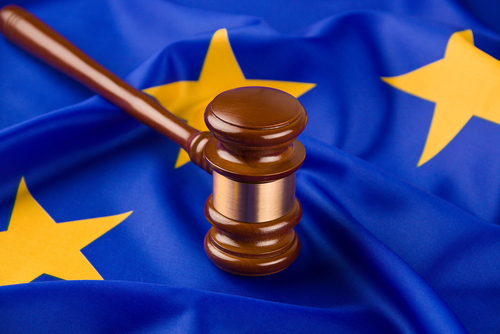Broadcom has become the latest American firm to face an official antitrust investigation by European competition regulators.
The European Commission said it has “opened a formal antitrust investigation to assess whether Broadcom may be restricting competition through exclusivity practices, in breach of EU rules.”
Essentially, Broadcom is being investigated over whether it uses exclusivity restrictions to block rivals in the TV and modem chipsets markets.

European investigation
The Commission also warned that it intends to impose interim measures during the investigation with regard to TV and modem chipsets markets.
“TV set-top boxes and modems are part of our daily lives, for both work and for leisure,” explained Margrethe Vestager, Commissioner in charge of competition policy. “We suspect that Broadcom, a major supplier of components for these devices, has put in place contractual restrictions to exclude its competitors from the market.”
“This would prevent Broadcom’s customers and, ultimately, final consumers from reaping the benefits of choice and innovation,” said Vestager. “We also intend to order Broadcom to halt its behaviour while our investigation proceeds, to avoid any risk of serious and irreparable harm to competition.”
The Commission said that it has gathered information indicating that Broadcom may be implementing a range of exclusionary practices in relation to these products, and as a result, has decided to open a formal investigation.
The Commission said it would now carry out its investigation “as a matter of priority.”
Broadcom meanwhile has stated that it believes it complies with European Competition rules and that the concerns are “without merit.”
If found guilty, Broadcom could face a fine of up to 10 percent of its global revenues.
Regulator Penalties
Broadcom is the latest US firm to be facing an antitrust probe for potentially breaching EU rules.
Qualcomm for example faced an antitrust investigation amid accusations that it tried to price rivals out of the mobile device industry.
Regulators eventually imposed a fine of 997m euros (£891m) in January 2018
Alphabet unit Google meanwhile have been hit with a number of heavy fines in recent years for its alleged anti-competitive practices.
In 2017 for example Google was fined 2.4bn euros (£2.01bn) after the Commission ruled that Google had thwarted rivals of shopping comparison websites.
Then in July 2018 the European Commission fined Google a record 4.3 billion euros (£3.83bn) for commercial practices related to its Android mobile operating system, the world’s highest ever antitrust penalty.
And then in March this year Google was once again been hit with a hefty financial penalty concerning the firm’s AdSense advertising service.
This time around Google was asked to pay 1.49bn euros (£1.3bn).
Those three fines means that Google is facing the possibility of having to pay out nearly 8.2bn euros in total, subject to appeals.
Do you know all about IT and the law? Take our quiz.




